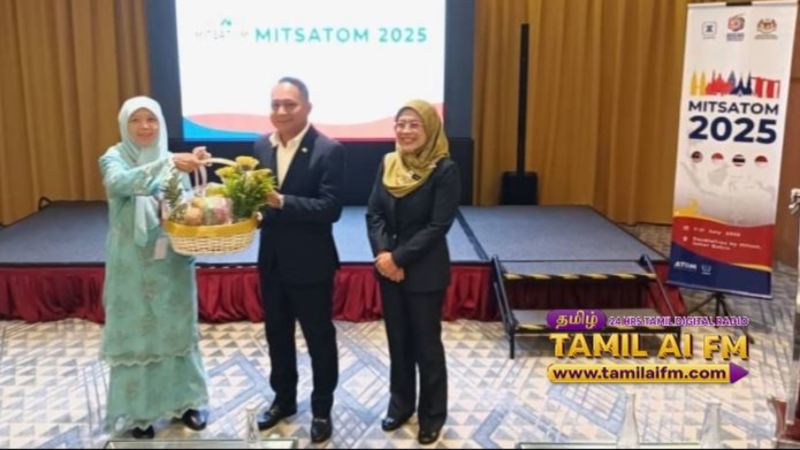JOHOR BARU — The Department of Atomic Energy (Atom Malaysia) revealed today that it has successfully uncovered several attempts by a syndicate to smuggle in illegal radioactive materials using forged customs documents.
The syndicate forged customs declaration forms that stated it was importing toys, dairy products or textiles as a cover for smuggling in the radioactive materials.
Atom Malaysia deputy director-general Monalija Kostor said the syndicate’s activities were recently uncovered after an inspection by the authorities.
She said attempts to smuggle in the radioactive materials were carried out via land and sea routes, involving the national border areas, with an average of 15 such cases per year.
“The syndicate also attempted to smuggle in radioactive materials via Kuala Lumpur International Airport (KLIA) in Sepang and through the entry point in Penang.
“However, the most frequent attempts occurred in Port Klang, Selangor, where the radioactive materials were declared as other items,” she told reporters after the Multilateral Nuclear Security Detection Exercise, Malaysia-Indonesia-Thailand-Singapore 2025 (MITSATOM 2025) opening ceremony at the DoubleTree by Hilton hotel here today.
Present at the event were Atom Malaysia director-general Noraisha Pungut and Johor Education and Information Committee chairman Aznan Tamin.
Monalija said Atom Malaysia actively conducts radioactive material smuggling detection at Malaysian borders through the installation of Radiation Portal Monitors (RPM) at the respective entry points.
“Most of the radioactive materials are smuggled in from foreign countries, including some taken out of our own country without a licence.
"This activity, which is carried out illegally without permission, can cause harm and be used by terrorists,” she said.
Monalija explained that the radioactive materials were smuggled mainly for use in the oil and gas, electronics, research and medical industries.
She added that such radioactive material, which is very dangerous when openly exposed, was smuggled to reduce the cost of legally importing the material.
“Legally importing radioactive material usually costs more than RM1 million and is dependent on the type of radioactive material.
“By smuggling these materials, the users aim to maximise their profits without realising the harmful public health effects and national security risks they pose,” she said.


